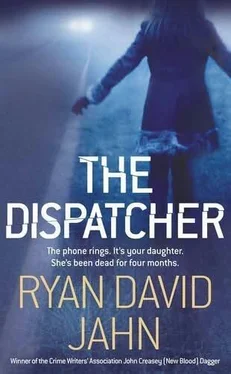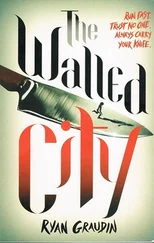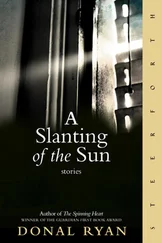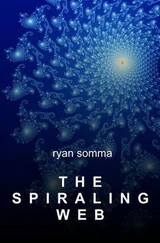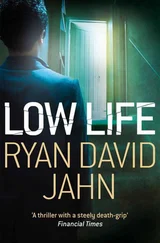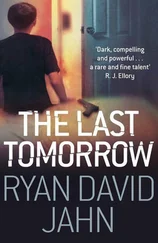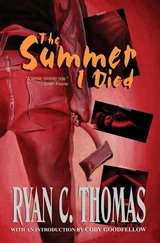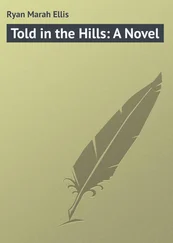Ryan Jahn - The Dispatcher
Здесь есть возможность читать онлайн «Ryan Jahn - The Dispatcher» весь текст электронной книги совершенно бесплатно (целиком полную версию без сокращений). В некоторых случаях можно слушать аудио, скачать через торрент в формате fb2 и присутствует краткое содержание. Год выпуска: 2011, Издательство: PENGUIN group, Жанр: Триллер, на английском языке. Описание произведения, (предисловие) а так же отзывы посетителей доступны на портале библиотеки ЛибКат.
- Название:The Dispatcher
- Автор:
- Издательство:PENGUIN group
- Жанр:
- Год:2011
- ISBN:нет данных
- Рейтинг книги:5 / 5. Голосов: 1
-
Избранное:Добавить в избранное
- Отзывы:
-
Ваша оценка:
- 100
- 1
- 2
- 3
- 4
- 5
The Dispatcher: краткое содержание, описание и аннотация
Предлагаем к чтению аннотацию, описание, краткое содержание или предисловие (зависит от того, что написал сам автор книги «The Dispatcher»). Если вы не нашли необходимую информацию о книге — напишите в комментариях, мы постараемся отыскать её.
The Dispatcher — читать онлайн бесплатно полную книгу (весь текст) целиком
Ниже представлен текст книги, разбитый по страницам. Система сохранения места последней прочитанной страницы, позволяет с удобством читать онлайн бесплатно книгу «The Dispatcher», без необходимости каждый раз заново искать на чём Вы остановились. Поставьте закладку, и сможете в любой момент перейти на страницу, на которой закончили чтение.
Интервал:
Закладка:
Henry told her if she kept her mouth shut they would not be killed, but she did keep her mouth shut and they were killed anyway. Henry lied.
He finishes covering the hole and pounds the dirt down with the flat of the shovel, and then throws his shovel into the bed of his Ford Ranger, which he drove around back of the house earlier this morning.
After that, but before digging the hole that would become Flint and Naomi’s grave, he removed the license plates from the Ford and threw them out into the field. Now he pulls open the door and takes out a pair of guns, and puts them into Flint’s Dodge Ram. He puts the long rifle behind the seats and tucks another smaller gun under the driver’s seat. Then he takes the boxes from the bed of his truck and puts them into the bed of the other.
When he’s done he takes his T-shirt from the back pocket of his Levis and wipes his sweaty face on it, and then slips back into it. It is covered with moisture and smeared with dirt.
Maggie wants to run-if she could just get away everything would be okay-but she feels certain Henry would catch her.
He caught Naomi. He caught Naomi and she was a grown up. He caught her and he stabbed her in the face and the neck and the chest, and he dragged her to the back of the house by her hair and dropped her and kicked her even though she was dead, and covered her with a blue tarp that he pulled from a stack of cordwood and dropped pieces of that wood onto the corners of the tarp to keep the wind from blowing it off the body. She watched him through a window, working in the circle of the back-porch light. There was blood on his hands when he was finished and he reached down and scooped up a handful of dirt and rolled his hands around in it before dusting himself off and coming inside. He pulled the steak knife from his back pocket and dropped it into the sink as if nothing had happened. As if the blood on it did not belong to a man and a woman who had never done anything but help them. As if nothing terrible had just happened at all.
It didn’t take him five minutes to return with Naomi after he ran out the back door. Not five minutes. When he left she was alive, when he returned she was dead. Maggie had tried to help save her. She had tried. Not for herself. It only occurred to her later, after Naomi was out the door and running, that if Naomi could get to help maybe that help would come here and rescue her. But when she did it, when she tripped Henry and yelled at her to go, it didn’t even cross her mind. She just wanted to help save the woman from Henry. But she did not save her.
Maggie wants to run, but she’s afraid of meeting the same fate.
She knew that if she tried to escape the Nightmare World Henry might kill her, but yesterday morning the idea of death was just that: an idea. She has seen death since, though, and she is not okay with it. She wants to live. She does not want the light inside her to go out.
And Henry is scared. She can see it in his face. He is scared of getting caught, and that makes him more likely to kill her if she causes too much trouble. Cornered animals lash out. Her daddy told her that once and she has never seen a reason to disbelieve it. Cornered animals are the most dangerous kind.
If she’s to run again she must pick her moment carefully; she must be certain of getting away. As certain as possible.
She nods to herself.
She’ll wait for her moment, then run.
Henry trudges over to them, wiping sweat from his brow. He blows his nose with his fingers, then shakes snot off his hand and wipes his hand off on his Levis. He squints at her and Beatrice sitting beside one another.
‘Well,’ he says, ‘let’s get the fuck out of here.’
Diego knocks on Ian’s front door. There’s a smear of burgundy on the white-painted wood by the brass doorknob and a bloody thumbprint on the knob itself. From Diego’s perspective the bloody thumbprint on the knob appears to have been smashed into the left cheek of his distorted reflection.
When Ian does not answer his door Diego knocks again.
‘Ian?’
Still only silence from the other side.
‘Ian?’
Diego grabs the knob and jiggles it. It is locked but not dead-bolted, and the door is loosely fitted. He turns the knob as far as the lock allows and jerks toward the hinges and presses his shoulder against the door. The first time it does not give, but the second time, with some minor cracking of the doorjamb, it swings open.
‘Ian?’
And still nothing, no response: a response in itself.
Earlier this morning when he called her Debbie would not tell him where Ian was. She said she didn’t know, but Diego did not believe her, nor does he now. And he is worried. Ian left the hospital last night, and Donald Dean did not show up at Bill’s Liquor this morning. Diego thinks Debbie knows something about the connection between those two events, but she isn’t talking, and he is unwilling to push it. The woman just lost her husband (wife-stealing asshole though Bill Finch was, may he rest in peace), and Maggie is as much her daughter as she is Ian’s. And Maggie’s reappearance may be harder on her in a way: she believed her daughter dead.
He steps into the apartment and closes the door behind him. He looks around.
Just to his left is a hat rack with a never-worn Stetson hanging upon it, as well as an Anaheim Angels cap that, as far as Diego knows, Ian wore only during the 2002 World Series (and for which he would have been taunted, except nobody in town really gave much of a shit about the Giants either). To his right, the kitchen: tile counter top, stainless-steel sink, small white refrigerator with a couple pictures of Maggie stuck to its door with magnets. Straight ahead, the living room: blue couch, coffee table on which a chess board and a few empty Guinness bottles sit, a television set.
There is a smear of blood on the arm of the couch.
‘Ian?’
Silence.
He walks down the bookshelf-lined hallway to the bedroom. The bed is made but looks as though it has been lain upon. The blankets are wrinkled and there is a dent in its middle. Within the dent is more blood. And on the floor between the bed and Diego a hospital gown in a pile.
A dresser drawer has been left open. A shirt hangs from it.
Blood. Signs that Ian was here but left in a hurry, and no sign of Ian himself.
And Donald is missing.
He has to go to the Dean place.
On his way he tries to call Ian’s cell phone for the third or fourth time this morning and, as happened before, the call goes to voicemail after five rings. He thumbs the button to end the call without bothering to leave a message, and then pockets his phone.
Rolling down the driveway is a surreal experience. All around are traces of what happened yesterday. Gravel stained red. Yellow tape cordoning off the house. A.22 casing missed by the county boys at the foot of the stairs, catching a glint of sunlight.
Diego drives past this to the single-wide mobile home behind the main house. It’s sitting on blocks, the axles and wheels long ago rusted, the tires rotted away and lying on the dead grass beneath like prehistoric serpents. Steps made of plywood and two-by-fours weathered to a pale gray, the dull copper of rusted nail heads dotting them.
The mobile home itself is a powder green, the metal siding dented in several places, tattered and torn window screens hanging from their frames like the flags of those who lost the war. An antenna juts above the asphalt shingles that line the roof.
He parks next to Donald’s El Camino and steps from his car.
‘All right, Diego,’ he says to himself, and unsnaps his holster with the twitch of a thumb. He walks up the steps-heel-toe, clunk-clunk-stopping at the narrow metal front door. He looks down. He is standing upon a welcome mat with Yosemite Sam on it, aiming a gun up at him from the ground. Hasn’t even announced himself yet and already there’s a gun pointed at his face.
Читать дальшеИнтервал:
Закладка:
Похожие книги на «The Dispatcher»
Представляем Вашему вниманию похожие книги на «The Dispatcher» списком для выбора. Мы отобрали схожую по названию и смыслу литературу в надежде предоставить читателям больше вариантов отыскать новые, интересные, ещё непрочитанные произведения.
Обсуждение, отзывы о книге «The Dispatcher» и просто собственные мнения читателей. Оставьте ваши комментарии, напишите, что Вы думаете о произведении, его смысле или главных героях. Укажите что конкретно понравилось, а что нет, и почему Вы так считаете.
